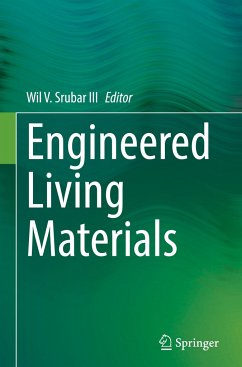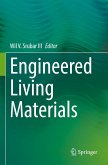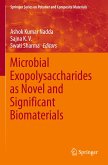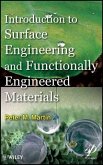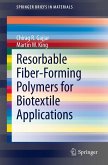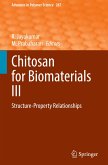This book will serve as a primer for readers to understand recent advances, applications, and current challenges in the field of Engineered Living Materials. The chapters cover core science and engineering research areas, including (1) advances in synthetic biology and genetic programmability for Engineered Living Materials, (2) functional Engineered Living Material for application in energy, electronics, and construction, and (3) novel manufacturing approaches for Engineered Living Materials at multiple scales.
The emerging field of Engineered Living Materials represents a significant paradigm shift in materials design and synthesis, in which living cells are used to impart biologically active functionalities to manmade materials. The result is a genetically programmable augmentation of non-living matter to exhibit unprecedented life-like (i.e., living) capabilities. At the intersection of synthetic biology and materials science, the field of Engineered Living Materials exhibits unprecedented promise and potential to alter the way we synthesize new materials and design medical devices, fabrics, robotics, commodity polymers, and construction materials. Materials with attributes of living systems can be engineered with an ability to respond to their environment and designed to self-repair in response to physical or other stresses or detect the presence of specific stimuli, such as light, heat, pressure, or hazardous chemical compounds.
Although nascent, scientists and researchers in the field of Engineered Living Materials have made marked advances in demonstrating a potential to revolutionize a multitude of science and engineering disciplines. This volume will define the current state of the art of Engineered Living Materials, and highlight grand opportunities and challenges that abound at the nexus of synthetic biology and materials science and engineering.
The emerging field of Engineered Living Materials represents a significant paradigm shift in materials design and synthesis, in which living cells are used to impart biologically active functionalities to manmade materials. The result is a genetically programmable augmentation of non-living matter to exhibit unprecedented life-like (i.e., living) capabilities. At the intersection of synthetic biology and materials science, the field of Engineered Living Materials exhibits unprecedented promise and potential to alter the way we synthesize new materials and design medical devices, fabrics, robotics, commodity polymers, and construction materials. Materials with attributes of living systems can be engineered with an ability to respond to their environment and designed to self-repair in response to physical or other stresses or detect the presence of specific stimuli, such as light, heat, pressure, or hazardous chemical compounds.
Although nascent, scientists and researchers in the field of Engineered Living Materials have made marked advances in demonstrating a potential to revolutionize a multitude of science and engineering disciplines. This volume will define the current state of the art of Engineered Living Materials, and highlight grand opportunities and challenges that abound at the nexus of synthetic biology and materials science and engineering.

